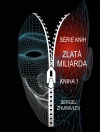The Psychoanalytic Movement explains how the language of psychoanalysis became the dominant way in which the middle classes of the industrialized West speak about their emotions.
* Explains how the language of psychoanalysis became the dominant way for the industrialized West to speak about emotion.
* Argues that although psychoanalysis offers an incisive picture of human nature, it provides untestable operational definitions and makes unsubstantiated claims concerning its therapeutic efficacy.
* Includes new foreword by Jose Brunner that expands on the central argument of the book and argues that Gellner and Freud might be seen as kindred spirits.
Inhaltsverzeichnis
Foreword.
Acknowledgements.
Introduction to Second Edition.
1. Back to Nature.
Gibbon’s Problem.
Some Basic Facts and Questions.
The Last Angel.
The Harbinger of the Pays Reel.
The Battering-Ram.
2. The Plague.
Give Us This Day.
Original Sin.
Pastoral Care.
The Click.
The Wager.
3. The Pirandello Effect.
Free-Fall.
Inside and Out.
Transference (Greater Love Has No Man).
Conceptual Deprivation.
The Terminal Valve.
The Implicit Promise.
4. On the Rack.
Licensed to Cure.
A State of Grace.
A Realist Theory of Knowledge.
Hire-Purchase Stoicism.
From Adjustment to Identity.
The Errors of Realism.
5. The Cunning Broker.
The Concept of the Unconscious.
Psycho-Hydraulics.
A Cunning Bastard.
Reduction at the Service of Man (or, a Plethora of Omens).
6. Reality Regained.
An Emaciated World.
The Servicing of Reality.
A Habitable World.
The Bourgeois Dionysic.
7. The Embourgoisement of the Psyche.
The New Guardians.
Plato Up-ended.
Transvaluation of Values, to Customer Specification.
Socrates and the Cave.
8. Anatomy of a Faith.
The Erring Husband and the Principle of Recursive Cunning.
Brief Checklist and a Much Worse Murder.
Data and Theory.
Some Outside Comments.
The Trickster.
Freud and the Art of Daemon Maintenance.
Eternal Corrigibility.
9. The Bounds of Science.
Testability.
Testability Vindicated?.
The Natural Transcendent.
Switches.
The Three-Horse Race.
Beast, Shaft and Test.
10. La Therapie Imaginaire.
Float and Sail.
Truth and Ideology.
The Well.
The Pineal Gland.
Captain of His Soul.
Conclusion.
Appendix.
Notes.
Select Bibliography.
Index.
Über den Autor
Ernest Gellner was born in Paris in 1925, and was educated in Prague and England. He was professor of philosophy and sociology at the London School of Economics from 1949 to 1984. In 1984 he became the William Wyse Professor of Social Anthropology at the University of Cambridge. He is the author of Nations and Nationalism (Blackwell Publishers, 1983), Anthropology and Politics (Blackwell Publishers, 1996), and Encounters with Nationalism (Blackwell Publishers, 1995). Dr Gellner died in 1995.












